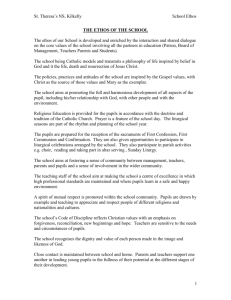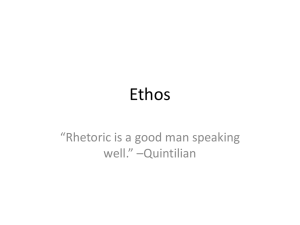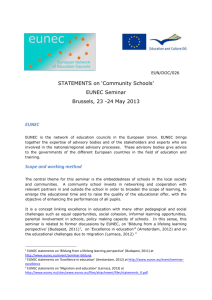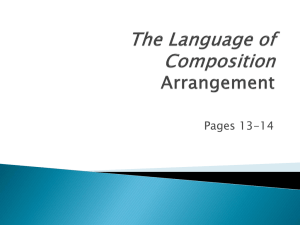Ethos statement
advertisement
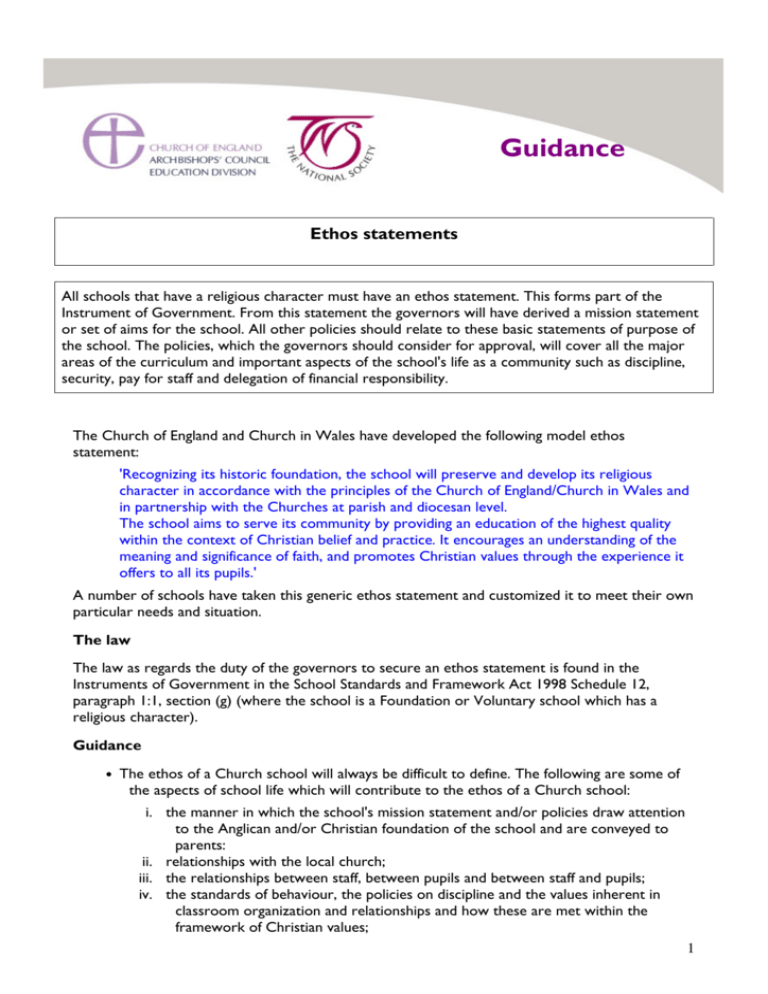
Guidance Ethos statements All schools that have a religious character must have an ethos statement. This forms part of the Instrument of Government. From this statement the governors will have derived a mission statement or set of aims for the school. All other policies should relate to these basic statements of purpose of the school. The policies, which the governors should consider for approval, will cover all the major areas of the curriculum and important aspects of the school's life as a community such as discipline, security, pay for staff and delegation of financial responsibility. The Church of England and Church in Wales have developed the following model ethos statement: 'Recognizing its historic foundation, the school will preserve and develop its religious character in accordance with the principles of the Church of England/Church in Wales and in partnership with the Churches at parish and diocesan level. The school aims to serve its community by providing an education of the highest quality within the context of Christian belief and practice. It encourages an understanding of the meaning and significance of faith, and promotes Christian values through the experience it offers to all its pupils.' A number of schools have taken this generic ethos statement and customized it to meet their own particular needs and situation. The law The law as regards the duty of the governors to secure an ethos statement is found in the Instruments of Government in the School Standards and Framework Act 1998 Schedule 12, paragraph 1:1, section (g) (where the school is a Foundation or Voluntary school which has a religious character). Guidance • The ethos of a Church school will always be difficult to define. The following are some of the aspects of school life which will contribute to the ethos of a Church school: i. the manner in which the school's mission statement and/or policies draw attention to the Anglican and/or Christian foundation of the school and are conveyed to parents: ii. relationships with the local church; iii. the relationships between staff, between pupils and between staff and pupils; iv. the standards of behaviour, the policies on discipline and the values inherent in classroom organization and relationships and how these are met within the framework of Christian values; 1 v. the links the school has with the local community, particularly the religious communities near to the school and from which pupils may come; vi. how effective the pastoral system is and whether it is effective from the pupils' point of view; vii. whether the building is well cared for, is tidy and clean and whether the standard of display is adequate; viii. the provision made for pupils with special educational needs and abilities; ix. whether it is clear from the ambience of the school that it is a Church school; whether there are Christian symbols in evidence, whether the school notice board and headed paper indicate the Christian foundation of the school; x. whether the school resource areas are equipped to support a Church school education; xi. whether the personal, health and sex education programmes are set in the context of Christian values; xii. whether there are staff prayers and Eucharists, prayers at staff and governors' meetings; xiii. whether there is a well-structured and managed policy for spiritual, moral social and cultural development. • The school ethos embodies the values advocated by the school's communities and provides the atmosphere for life in and beyond the school itself. The ethos statement required in the prospectus for all schools acts as a focus for the unity of values and purpose among the diversity of the members of the school communities. For many schools their ethos will be rooted in the religious beliefs and values associated with the foundation of the school. Such an ethos can be a powerful influence on the school's aims, purposes and day to day life. Author Date Review Date National Society 2013 2



